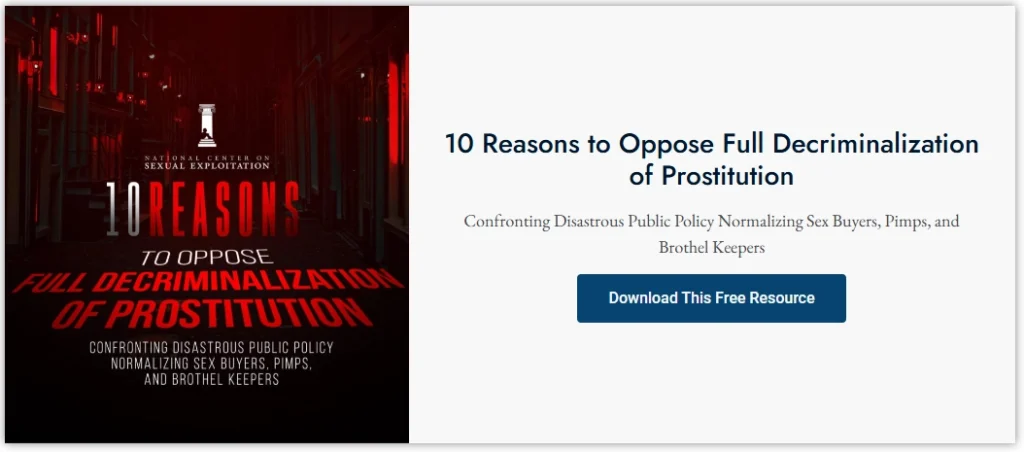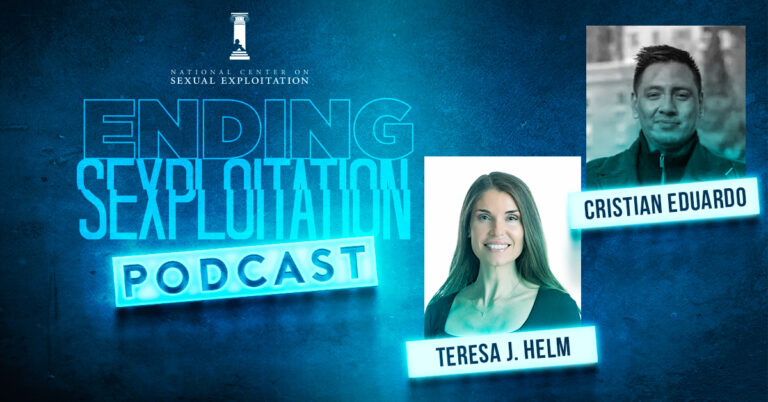“A few months before and after I got out of prostitution, I started having what I now know are panic attacks and I lost the ability to speak. I just couldn’t talk, no sound would come, I was shutting down.”
This is how one prostitution survivor describes the extreme trauma that followed her even after leaving the sex trade.
For many who have managed to escape the terrifying grips of prostitution, the battle for freedom, happiness, and peace, is only half won. Even when threats of gang-rape, degrading sexual acts, choking/strangulation, stalking, and beatings are no longer part of their daily lives, prostitution survivors now face a much more understated threat, one that often prevents them from finding complete liberation – severe mental health disorders.
Mental health disorders loom beneath the surface, not an immediately apparent threat to survivors, yet an undeniable roadblock in their pursuit of healing.
Why Are Prostituted Persons Left Out of the Global Conversation About Mental Health?
Today is World Mental Health Day. In recent years there has been an incredible surge in mental health advocacy, leading to an undeniable increase in the cultural awareness and sensitivity regarding these struggles.
As successful as the movement for mental health awareness has been, there is one demographic that is consistently left out of these conversations: prostituted persons.
Given what we know about the severity of the abuse that occurs in prostitution, making the link with mental health disorders does not require a large stretch of the imagination. But we don’t have to simply imagine it; there is overwhelming data to back this hypothesis.
Research Demonstrates the Devastating Mental Health Impact of Prostitution
In an analysis of 478 adult women arrested for prostitution, 29% had ever attempted suicide. In addition to suicidal ideation, a cross-sectional data analysis of 72 prostituted women in Australia found that 47% met the criteria for lifetime PTSD diagnosis, and mild to severe depressive symptoms were experienced by an overwhelming majority of 87%. A 2012 study of 562 African American prostituted women in Miami found equally devastating results; serious mental illness was apparent in 74% of the women, reporting symptoms of depression, anxiety, or traumatic stress.

Few Prostituted Persons Seek Help for Mental Health Disorders
While the link between prostitution and mental health disorders is well established in the research, the mental burden of exploitation is still one that many survivors have to bear alone and in silence. In the previously mentioned study of the African American women in Miami, a mere 21% of women with severe mental health illnesses reported receiving any mental health care. Those suffering face a joint stigma that makes it especially difficult to find mental refuge and release—the stigma of having been in prostitution, and the stigma surrounding mental health.
As demonstrated, prostituted persons are a demographic who experience an astonishing mental health crisis. The hidden wounds of prostitution cannot continue to be overlooked. These individuals deserve a life not only free from exploitation, but free from the mental burden that abuse inevitably places on them, forcing them to relive their experiences over and over, even once they have escaped. Finding justice for these victims not only involves the escape, but the rehabilitation as well.
Resources
If you or someone you know is suffering the mental health impacts of prostitution, you can find help at the following resources:


